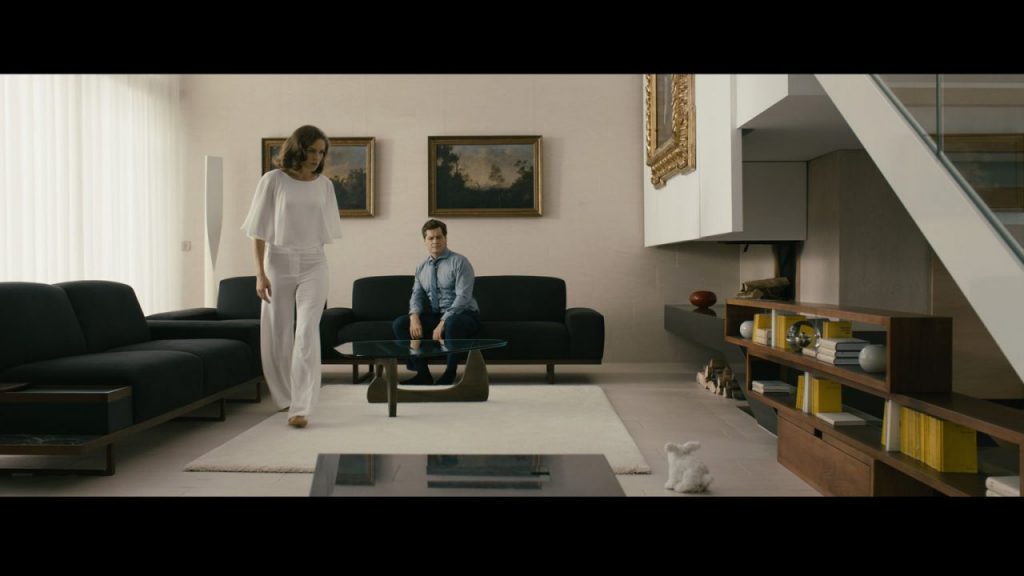This film is about choosing a direction in life and how much help you really want or need; and Life Guidance certainly needs some help choosing a direction. The beginning of the film is essentially an update of Fahrenheit 451, with Alexander Dworsky (Fritz Karl) providing a Montag somewhat less flighty than Truffaut’s version, and his career choice is also a great deal more mundane – he is a futures trader at a faceless finance corporation. So very faceless that they all dress exactly the same way – which is an excellent excuse for Mader to deploy her strong and subtle use of palette to really control the tone of this film.Karl is excellent in the role and the viewer will be keen to find out what happens to him, his wife, and his precocious son. And so we move on to The Bit From 1984, with wunderkind Franz (Nicolas Jarosch) totally bought in to the concept of “optimal” at school (brilliantly established in the first scene of the film), and keen to highlight that Dad is not always optimal. Not actually off-message, but not perfectly “op-ti-mal.”
Help is available for the sub-optimal in the form of the Life Guidance team, but first you have to want to be helped. Franz is given a speaking toy whilst his parents are out, literally sending a message; neither Dworsky is impressed by this move, but this does set Mum (Katherina Lorenz) wondering whether Dworsky does actually need some attitude adjustment. Life Guidance keep the pressure up with the Guidance agent assigned (Florian Teichtmeister) popping up at home and work, like Brian Eno whispering oblique strategies in his ear. He drives an orange car. Of course he does. There’s a sprinkling of more Orange in the excellent soundtrack, mixed in with a Herrmannesque conventional score; this sits well with a general Hitchcock tone running through the storytelling.
The seasoned viewer will guess how the rest of the Guidance strand plays out. There’s the obligatory scene with the Polizei (“yes, we are aware of them and cannot help”) and an appeal to senior figures for off the record assistance, which inevitably misfires. The remainder of the film shows us Dworsky going through denial and crisis. He finds other people have the problem (with a great turn from Kristina Bangert); he finds the explanation; he has another crisis; and eventually he reaches a conclusion.
He does most of this in the rebooted 451 Modernist world, which cinematographer Christine A. Maier captures beautifully, but he is sent to Dave Bowman’s hotel for a while – this is the Fortress of Sleep, heavily trailed as the ultimate sanction earlier in the film. The process of discovery also includes Room 101, with a choice of showstoppers that go a little bit too far in the opinion of this reviewer. One is just grim, and is everybody’s demon, which misses the point; the other is intended to provide bathos and might have worked with Gilliam or Fincher, but not here.
This film is a missed opportunity. The Winston-Montag gestalt really works, and the film-making comes together – but it just gets totally lost in the middle, and there are too many ideas strewn throughout, like kipple in a chickenhead apartment. It’s recommended viewing, but it’s just not quite… optimal.
Director: Ruth Mader
Writers: Martin Leidenfrost, Ruth Mader
Soundtrack: Manfred Plessl
Stars: Fritz Karl, Katherina Lorenz, Florian Teichtmeister
